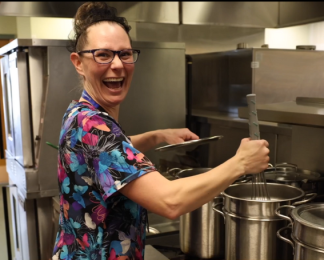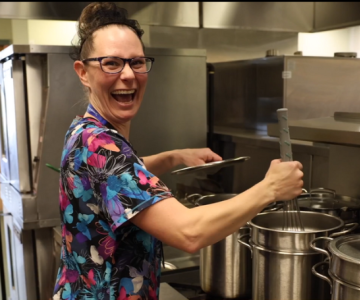When my frail elderly aunt had a fall at home, she was admitted to Penticton Regional Hospital emergency department for assessment. The care team listened to our concerns and worked with us to figure out how best to assess her, because we knew her best and understood what her usual behaviours and abilities were.
Later in the day, the physician contacted us to explain the assessment, interventions and follow up and then asked my husband, “how do you feel about taking her home?”
I was really impressed with the question and relieved to know we weren't just going to be told she was being discharged.
While my aunt was in their care that day, the care team had built a relationship of trust and we were happy to bring her home knowing the team had assessed her carefully and planned for what interventions would be necessary for her to go home.
Recent research shows there is a strong connection between how well you plan for someone to be sent home (discharged) from the hospital, and the likelihood that they will need to go back to the hospital (readmitted). This is especially true for older people.
Team-based care (like the kind my aunt received) stresses the importance of including family as valued members of the health-care team, particularly when planning for a person to leave the hospital. Team-based care also focuses on communicating openly with patients and families to balance the caregiver’s needs and expectations with the discharge process offered by the facility.
Want to learn more? Check out our information on Getting discharged from hospital.
About the author:
Mary Kjorven is a gerontologist and works with Interior Health as a regional clinical nurse specialist














